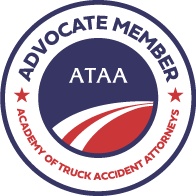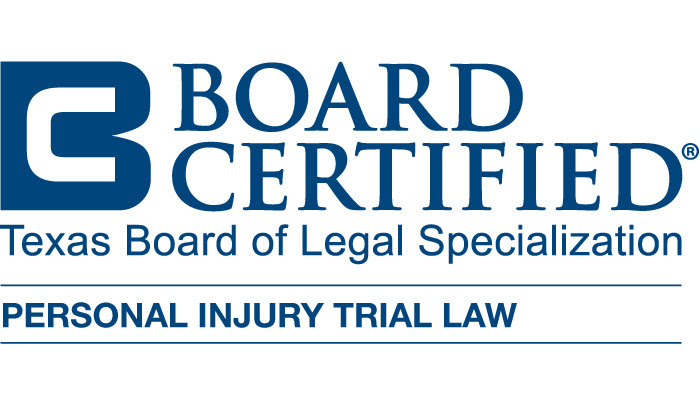In Texas, the safety and well-being of children in daycare facilities is a paramount concern, and the legal framework governing these institutions is extensive and rigorous. The state imposes stringent regulations and standards to ensure that daycares provide a safe, nurturing environment where children can thrive. For parents entrusting their children to these facilities, understanding the legal responsibilities of daycares is crucial. It offers peace of mind and ensures that the institutions they choose are committed to upholding the highest standards of care.


Licensing and Regulatory Oversight
Daycare facilities in Texas are subject to rigorous licensing requirements overseen by the Texas Department of Family and Protective Services (DFPS). This body mandates that all daycare centers meet specific health, safety, and staffing standards before they can operate. The licensing process involves comprehensive inspections and assessments to ensure that the physical environment is safe, that staff are properly trained, and that there are adequate provisions for emergency situations. These regulations are designed to protect children from potential hazards and to ensure that they receive appropriate care and supervision.
Staff Qualifications and Training
The quality of care provided in daycares is significantly influenced by the qualifications and training of the staff. Texas law requires that all daycare employees undergo background checks to ensure they do not have a history of behavior that could endanger children. Additionally, staff must meet specific educational and training requirements. This includes ongoing professional development to stay updated on best practices in child care and safety. Proper staff training covers a wide range of topics, from child development and first aid to handling emergencies and managing infectious diseases. By ensuring that staff are well-trained and knowledgeable, Texas aims to create a safe and supportive environment for children.
Health and Safety Standards
The health and safety standards for Texas daycares are comprehensive and detailed, covering various aspects of daily operations. These standards dictate everything from the cleanliness of the facility and the hygiene practices of staff to the nutritional quality of the meals provided to children. Daycares must adhere to strict protocols to prevent the spread of illness, including regular hand washing, sanitizing toys and surfaces, and ensuring that sick children are promptly isolated and sent home. Moreover, facilities must have clear procedures for managing emergencies, such as fires or natural disasters, and conduct regular drills to ensure staff and children are prepared.
My focus is to give a voice to families who have suffered a wrongful death or a serious injury to a family member caused by an 18-Wheeler, commercial truck, or a drunk driver. Contact us today, we can help you.Helping Injury Victims for Over 25 Years
Child-to-Caregiver Ratios
One of the critical factors in ensuring child safety in daycares is maintaining appropriate child-to-caregiver ratios. Texas law specifies the maximum number of children that one caregiver can supervise at a time, and these ratios vary depending on the age of the children. Younger children, especially infants and toddlers, require more intensive supervision and care, thus necessitating lower ratios. Adhering to these ratios is essential for providing individualized attention, reducing the risk of accidents, and ensuring that all children’s needs are met promptly.
Safe Physical Environment
Creating a safe physical environment is another fundamental responsibility of Texas daycares. This involves not only the structural integrity of the facility but also the layout and accessibility of various areas within the daycare. Play areas must be safe and free from hazards, with age-appropriate equipment that is regularly inspected and maintained. The facility must have secure entrances and exits to prevent unauthorized access and ensure that children cannot wander off. Additionally, daycares are required to have adequate outdoor play areas that are fenced and safe for children to explore and play under supervision.
Reporting and Responding to Abuse or Neglect
Daycares have a legal obligation to report any suspected cases of child abuse or neglect. This responsibility is critical in safeguarding children who may be vulnerable to harm. Texas law mandates that daycare providers undergo training to recognize the signs of abuse and neglect and know the appropriate steps to take if they suspect a child is at risk. This includes immediately reporting their concerns to the DFPS or local law enforcement agencies. By fostering a culture of vigilance and responsibility, daycares play a vital role in protecting children from potential harm and ensuring that any suspicions are thoroughly investigated.
Parent Communication and Involvement
Effective communication between daycare providers and parents is essential for maintaining a safe and supportive environment for children. Daycares are required to keep parents informed about their child’s daily activities, progress, and any incidents that occur while in care. Regular updates and open lines of communication help build trust and allow parents to be active participants in their child’s care. Daycares must respect parents’ rights to access their children at any time and provide transparent policies regarding visitation, discipline, and other important matters.
Emergency Preparedness
Being prepared for emergencies is a critical aspect of daycare operations in Texas. Facilities must have comprehensive emergency plans that cover a range of scenarios, from natural disasters to medical emergencies. These plans should detail evacuation procedures, communication strategies, and roles and responsibilities of staff during an emergency. Regular drills and training sessions help ensure that both staff and children are familiar with the procedures and can respond quickly and effectively in the event of an actual emergency. By prioritizing emergency preparedness, daycares can minimize risks and ensure the safety of children under their care.
Legal Consequences of Non-Compliance
Daycares that fail to comply with Texas regulations face serious legal consequences. These can include fines, suspension or revocation of licenses, and even criminal charges in cases of gross negligence or abuse. Non-compliance not only endangers the well-being of children but also undermines the trust of parents and the community. The legal framework is designed to hold daycares accountable and ensure that they meet the highest standards of care. Regular inspections and monitoring by the DFPS help enforce these regulations and identify any areas where daycares may need to improve.
Importance of Choosing the Right Daycare
For parents, choosing the right daycare is one of the most important decisions they will make. Ensuring that a daycare meets all legal requirements and provides a safe, nurturing environment is crucial for a child’s development and well-being. Parents should thoroughly research potential daycares, ask about staff qualifications and training, review the facility’s safety protocols, and seek references or reviews from other parents. By taking these steps, parents can feel confident that they are making the best choice for their child’s care and safety.
Related Videos
Choosing a Personal Injury Attorney
Types of Compensation in a Truck Accident Claim
The Role of Legal Support
Despite the stringent regulations in place, there may be instances where daycares fail to meet their legal responsibilities, resulting in harm to a child. In such cases, legal support becomes essential. Parents who believe that their child has been neglected or harmed due to a daycare’s negligence should seek legal advice to understand their rights and the potential remedies available. Legal professionals can help parents navigate the complexities of the legal system, gather evidence, and build a strong case to hold the daycare accountable for any wrongdoing.
Ensuring the safety and well-being of children in daycare facilities is a collective responsibility that requires vigilance, dedication, and a thorough understanding of the legal framework governing these institutions. If you are a parent concerned about the standards of care at your child’s daycare or suspect that your child has been a victim of neglect or abuse, it is crucial to seek legal assistance promptly. The team at Willumsen Law Firm, P.C. is dedicated to protecting the rights of children and ensuring that daycare facilities are held accountable for their actions. Contact us today for a consultation and let us help you navigate the legal process to secure justice and safety for your child.



